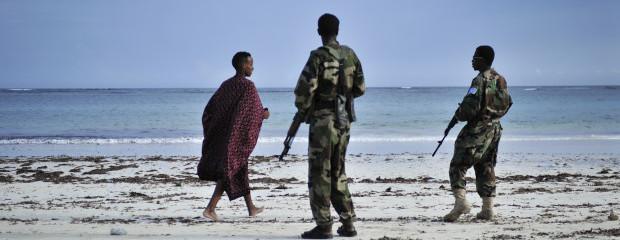African women in the workplace: From “Why me?” to “Why not me?”

Sustaining an un-level playing field isn’t just bad for women. It’s bad for companies.

Discussing female leadership in Dakar. Credit: Les Héroïnes.
When Anta Babacar Ngom Bathily was appointed to be the new director-general of Senegal’s leading poultry company, she was hesitant at first. “I asked myself, why me?” she says. Even though she had risen through the firm by virtue of her hard work, dedication and an intricate knowledge of the sector, she had doubts as a young woman in a male-dominated field.
Bathily’s experience is not uncommon amongst female leaders. While almost everyone suffers from impostor syndrome to some extent, its effects tend to be more strongly felt by women. An often-quoted figure is that men will apply for a job if they meet 60% of the criteria, but women apply only if they meet 100% of them.
It is easy to say that women simply need to gain in confidence, but the reality is that women are not treated equally. In a recent study in the US, researchers found that male and female entrepreneurs were asked different kinds of questions when applying for investment. Two-thirds of questions asked to men were about potential gains and plans for success; two-thirds of questions asked to women were about risks and testing whether they had “done their homework”.
This reveals an implicit belief that women cannot lead or must at least be held to much higher standards. It was this conditioning that prompted Bathily’s self-doubt. According to her, it took a real mental effort to shift from thinking “Why me?” to “Why not me?”
“Yes, I am young, a woman, black, African,” she says. “But I have every right to lead as much as anyone else.”
Hurdles and ceilings
The hurdles for women advancing up an organisation are many and well-documented. At the recruitment level, women are frequently passed over in favour of men with the same or lower qualifications. They earn less for doing the same job, get promoted less often, are given less credit for their work, and are awarded fewer second chances than their male colleagues. Furthermore, women who are not appropriately demure or self-effacing are often considered “unfeminine” or aggressive.
Creating an un-level playing field is not just bad for women. A 2007 study of 520 companies found that firms with the highest proportion of female board members far outperformed those with the lowest. The quarter of companies with the best female representation on their boards generated a 42% higher return on sales, 53% higher return on equity, and 66% higher return on invested capital than those with the poorest representation of women.
Correlation does not mean causation, but companies with more female decision-makers are likely to have more inclusive workplace cultures, policies, and programmes to support meritocratic employee advancement. Having more female representation also attracts more qualified women by demonstrating that the company is a place where their ambitions are rewarded. All this in turn has an effect on the bottom line.
Heroines joining forces
Earlier this month, hundreds of women like Bathily gathered in Dakar, Senegal, to inspire the next generation of African female leaders. Organised by Jeune Afrique, the event entitled Les Heroines brought together women from a wide range of fields to discuss the challenges faced by women in the workplace.
Ahead of the Les Heroines event, the Senegalese organisation Beautiful Soul surveyed participants on the areas that need to be addressed to level the playing field for women. The responses touched on a wide range of work life elements including recruitment, working conditions, salary growth, terms of employment, and access to training.
Companies that wish to reduce these unfair gendered hurdles will have to recognise implicit biases in all these areas and address them. However, alongside these reforms, many women at the event also spoke of the importance of solidarity, inspiration and of having “champions” at work, whether male or female.
A recurring theme in conversations was the belief that speaking to mentors who have endured similar experiences is crucial in making it clear that women are not alone in their struggles and that their problems are not insurmountable. Connecting with fellow female leaders can allow women to inspire one another in their achievements and ambitions.
In the words of Madji Sock, the Global Operating Partner of Dalberg Group and co-founder of the Senegal Women’s Investment club: “Women have to take the lead to empower themselves and their fellow women. Now is the time of action to get women to fully contribute to their own development, and to the development of their countries.”




